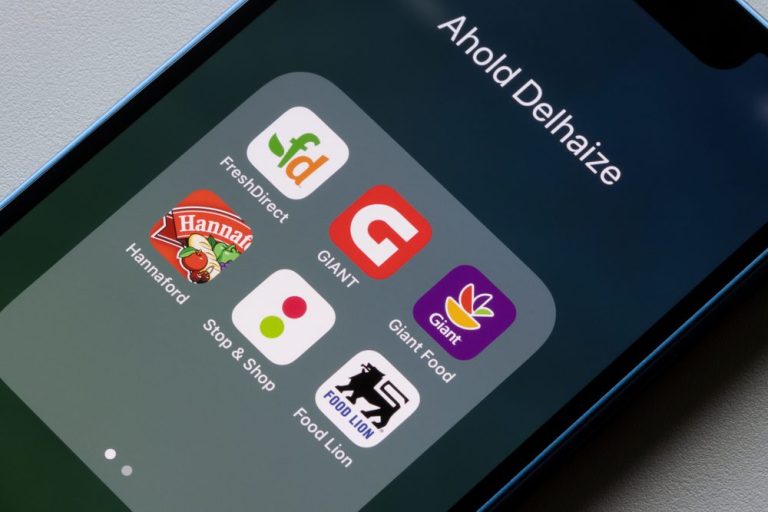Ahold CFO Says 10B Personalized Offers Drove Record Digital Engagement

Ahold Delhaize is combating inflation-related belt-tightening by leveraging customer data to offer targeted rewards.
The multinational grocery giant, parent of a range of well-known supermarket chains, spoke to the success of these efforts on a call with analysts Wednesday (Feb. 15), discussing the company’s fourth-quarter 2022 financial results.
“U.S. brand sales from loyalty programs and online orders reached an all-time high,” Chief Financial Officer Natalie Knight said. “This has been a trend we saw building throughout the year as our consistent investment in growing these capabilities again delivered incremental sales gains. Our brands’ direct customer engagement activities are a good example, now reaching around 30 million households and delivering over 10 billion personalized offers annually.”
Overall, online grocery penetration has plenty of room to grow. Research from PYMNTS’ recent study “Changes in Grocery Shopping Habits and Perception,” which draws from a December survey of more than 2,400 U.S. consumers, finds that 45% shop for groceries online at least some of the time. Yet only 7% do so all the time, while nearly eight times that share — 54% — shop in stores all the time.
That said, the share is quickly rising. That 7% figure marks a 36-fold increase from where the share stood before the pandemic.
Indeed, targeted rewards are a great help to grocers in driving digital loyalty. For instance, research from PYMNTS’ study Big Retail’s Innovation Mandate: Convenience And Personalization, created in collaboration with ACI Worldwide, which is based on responses from 300 major retailers in the U.S. and the U.K., found that 74% of grocers polled think that consumers would be very or extremely likely to switch merchants if digital coupons and rewards were not provided.
Given the success so far of Ahold Delhaize’s rewards personalization efforts across its U.S. brands, which include Stop & Shop, The Giant Co., Peapod Digital Labs and others, the company is upgrading its digital platforms in the country going forward. CEO Frans Muller argued that, for the firm to hold its own against competition from other leading grocery brands, it needs to prioritize speed of execution.
“Speed is critical to win the features and functions war,” Muller said, noting that the company will be rolling out a new app that will provide an intuitive user experience and that will use the grocer’s “advanced analytics” to offer “hyper-personalized experiences.”
These efforts to drive loyalty come at a time when consumers are trading down, buying fewer items and switching from shopping at supermarkets to purchasing food from discount retailers.
PYMNTS’ study “Consumer Inflation Sentiment: Perception Is Reality” revealed that 69% of consumers have made changes to their grocery shopping lists in the last year in response to rising prices. Fifty-nine percent have reduced the quantities of items they are purchasing, and 35% have reduced the quality.
Plus, the October edition of the Consumer Inflation Sentiment study, “Consumer Inflation Sentiment: Consumers Buckle Down on Belt-Tightening,” found 47% are switching to cheaper merchants.
By personalizing offers to consumers’ preferences, Ahold Delhaize can work against shoppers’ impulse to pull back and switch merchants. Indeed, despite these initiatives, the grocer is seeing the effect of that belt-tightening.
“You can understand that volumes are, at the moment, down in the U.S. which is not only for us the case — that is an industry[-wide] phenomenon,” Muller said.